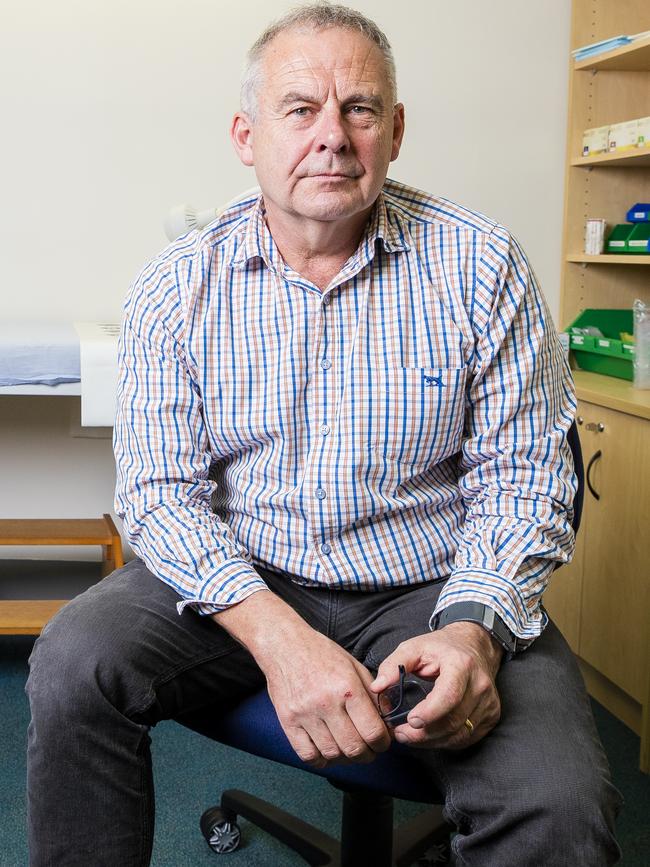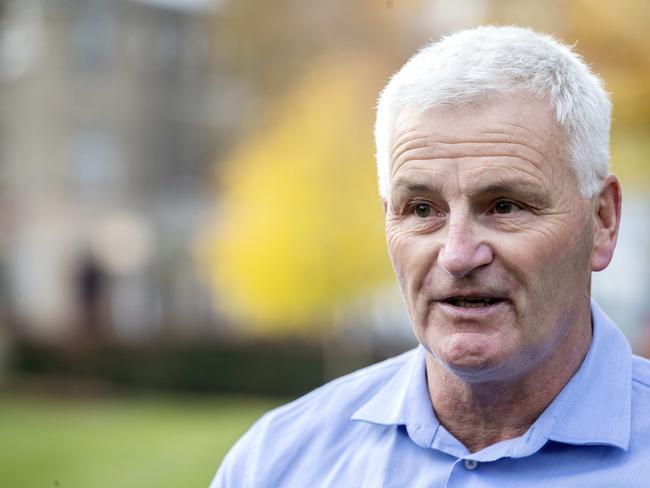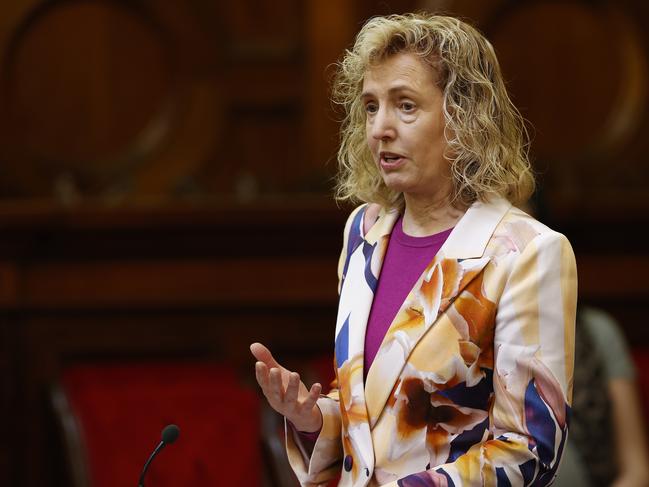Bulk-billing on ‘life support’ in rural and regional Tasmania: AMA Tasmania president John Saul
The practise of family medicine in Tasmania is facing collapse with a shortage of GPs and a chronically underfunded system, health officials say. See what’s being done about the crisis >
Tasmania
Don't miss out on the headlines from Tasmania. Followed categories will be added to My News.
THOUSANDS of Tasmanians do not have a GP and experienced doctor Graeme Alexander says that situation is set to spiral out of control within months.
Dr Alexander is among many Tasmanian doctors considering his future and has given himself two more years in GP practice before he makes a decision on whether to continue.
The Hobart GP said that a decade ago 60 per cent of medical graduates wanted to go into general practice.
“That is now 14 per cent and falling,” Dr Alexander said.

“No-one wants to do this job anymore. Our patients value our work but state and federal governments do not.
“We need to retain our experienced workforce and make the job attractive to those being trained now.
“This is the only profession I know where as you get older, wiser and more experienced your job gets harder and the remuneration goes down.
“We don’t have a union, we don’t hold placards or go on strike.
“But as more of the ‘easy bits’ of our job are being taken on by pharmacists, we are left treating older patients with complex and multiple health conditions.
“We are heading for a cliff and governments are doing nothing except continuing the blame game.”
On paper, there are currently about 60 full-time equivalent GP positions available in Tasmania, but Dr Alexander said the actual number is much higher with many GPs currently looking to get out of the profession.
A Deloitte report predicts that by 2032, Australia’s GP shortfall will reach 11,392.
Some Tasmanian towns such as Dover are set to lose their only GP.
Tim Jackson, chair of the Tasmanian branch of the RACGP, says the problem has been growing for decades.
“There’s a real crisis and it’s been a long time coming,” Dr Tim Jackson said.
“It’s really crunch time now and unfortunately we’re seeing access problems with patients.”
Dr Alexander said he and other GPs had been giving governments solutions for years.
“I have been to the Senate and to the Productivity Commission and told them we need retention grants to keep the experienced doctors while we work to make the profession more attractive to medical graduates. But it seems governments want political policies not solutions,” he said.
Why GP bulk-billing is ‘on life support’ in Tasmania
Bulk-billing is “on life support” in rural and regional Tasmania due to an “atrocious” lack of federal funding for general practice, the state’s peak doctors’ body says.
It comes after an upper house committee released its final report into rural health services, following an extensive inquiry.
The committee, chaired by independent Murchison MLC Ruth Forrest, found that workforce shortages, recruitment challenges and “inflexible” funding arrangements were reducing the quality of health care in Tasmania, particularly in general practice.
Australian Medical Association Tasmania president Dr John Saul said rebates under the Medicare Benefits Scheme had been indexed by just 1.6 per cent from July 1, meaning GPs would only receive an additional 65 cents for a standard consult and patients faced higher out-of-pocket costs.

The consumer price index, meanwhile, stands at 7.3 per cent.
“The current Medicare rebate and funding from the federal government is atrocious,” Dr Saul told the Mercury.
“[Bulk-billing is] on life support at the moment, with a lot of practices just taking the cut in income but struggling to recruit as a result of it.”
“The … rebate from Canberra just doesn’t cover our costs, and especially not for after hours work.
“It’s just so frustrating from a general practice point-of-view.”
Dr Saul said there were at least 60 advertised GP vacancies across the state.
“We feel that figure, based on our GP numbers per capita, is closer to 150,” he said.
Ms Forrest said if action wasn’t taken to address the problem, health outcomes would likely get worse in rural and regional areas.
“The end result is more pressure on our acute health services and more money gets sucked into that black hole,” she said.

“We’ve got to keep people as well as we can. Early intervention cannot happen if you don’t have access to health care in the community.”
Federal Health Minister Mark Butler acknowledged that it had “never been harder or more expensive for Tasmanians to see a doctor than it is now”.
He blamed the previous Coalition government for “nine long years of cuts and neglect of Medicare”.
Mr Butler noted that the Albanese government had established a $750m fund to strengthen Medicare and had budgeted $220m for doctors to invest in general practices.
Premier and Health Minister Jeremy Rockliff would not commit to adopting and implementing all the committee’s recommendations but said the state government would fully consider the report.
He said a number of existing government commitments “directly address several recommendations made by the Legislative Council committee”.




